Samaaro + Your CRM: Zero Integration Fee for Annual Sign-Ups Until 30 June, 2025
- 00Days
- 00Hrs
- 00Min
In the dynamic business world, B2B (Business-to-Business) events serve as centres where industry leaders, professionals, and innovators congregate to forge connections, spark collaborations, and propel progress. In addition to exhibiting products and exchanging business cards, the purpose of these events is to foster meaningful interactions and fruitful partnerships. However, effectively orchestrating these interactions is no simple task. This is where meeting schedulers’ transformative power comes into action.
In essence, pre-meeting schedulers are the architects of these interactions. Through digital platforms you can organise meetings, sessions, and networking opportunities for event attendees. The significance of scheduling in B2B events cannot be emphasised, as it can make or break the experience of attendees, impact the ROI for businesses, and ultimately determine the event’s success. We will delve into the various challenges encountered in manual scheduling processes, explore the advantages of using meeting schedulers and more.
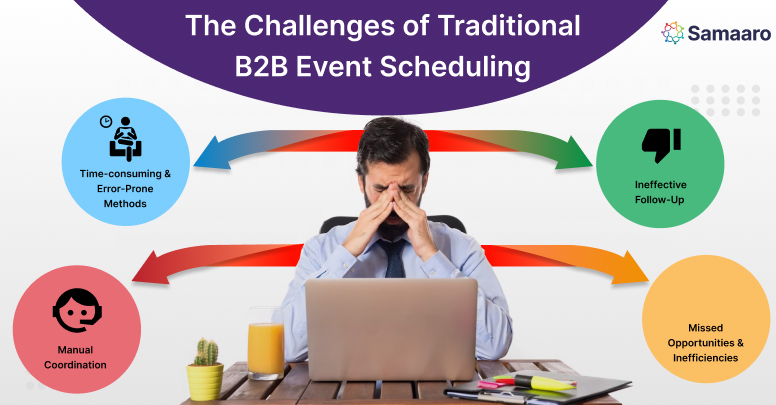
A. Time-consuming and Error-Prone Methods
Traditional B2B event scheduling methods often involve a laborious process of spreadsheets, emails, and phone calls. Organisers must contend with the complexities of coordinating schedules, preventing double reservations, and accommodating last-minute adjustments. This procedure is not only time-consuming, but also prone to human error, which can result in lost opportunities and dissatisfied attendees.
B. Missed Opportunities and Inefficiencies
One of the major disadvantages of manual scheduling is the possibility of squandered opportunities. Due to scheduling conflicts, attendees may not connect with the right individuals or attend the most pertinent sessions. Moreover, inefficiencies in the scheduling process can lead to lengthy wait periods, leaving attendees frustrated and disengaged. These wasted opportunities and inefficiencies can have a direct impact on the event’s success and its capacity to provide attendees and exhibitors with value.
C. Ineffective Follow-Up
Follow-up after a B2B event is essential for solidifying the connections established during the event. Nevertheless, traditional scheduling methods typically lack built-in follow-up mechanisms. This can lead to missed opportunities to cultivate relationships and convert prospective prospects into profitable business partnerships.
D. Manual Coordination
In a conventional scheduling scenario, meeting coordination falls solely on the shoulders of event planners. This manual coordination can become overwhelming, particularly for large-scale events with numerous participants. Organisers are left to juggle schedules, make last-minute adjustments, and attempt to accommodate special requests, all of which can result in logistical complications.
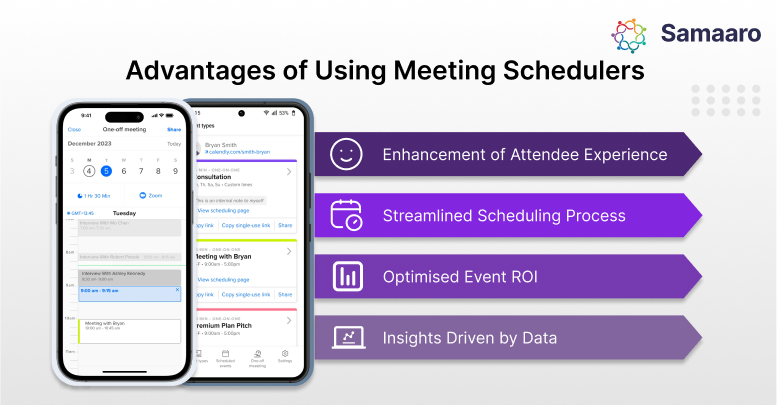
A. Streamlined Scheduling Process
Meeting schedulers, the digital orchestrators of B2B events, bring order to the chaos. They automate the scheduling process, freeing up valuable organiser time and reducing the risk of scheduling errors by a significant margin. Equipped with user-friendly interfaces and advanced algorithms, these tools match attendees based on their preferences, availability, and even business objectives a breeze.
B. Enhancement of Attendee Experience
Meeting schedulers are customised to improve the experience of attendees. Attendees can now customise their event experience by selective selection of relevant sessions, meetings, and networking opportunities. With meeting schedulers, every moment at the event becomes a golden opportunity. Gone are the days of frustrating wait times and uncertainty as to whether an interaction will produce value.
C. Optimised Event ROI
With the introduction of meeting schedulers, the ROI (Return on Investment) for B2B events is substantially improved. These tools increase the likelihood of forming long-term partnerships and collaborations by facilitating precise matchmaking and targeted networking opportunities. The impact on businesses extends well beyond the event itself, making each interaction a long-term investment.
D. Insights Driven by Data
The additional benefit of meeting schedulers is that they capture invaluable data on attendee preferences, session popularity, and feedback. This abundance of data provides organisers with actionable insights that can inform strategic decisions, enhance future events, refine content, and improve networking strategies.
E. Confirmed Meetings & Attendance
The ability of pre-meeting schedulers to convert prospective or “maybe” meetings into confirmed ones is a significant advantage. In conventional B2B event scheduling, attendees frequently indicate an interest in meeting with potential partners or clients, but no firm commitment is made to attend. But with the emergence of pre-meeting schedulers, it guarantees that their investment in the event will yield tangible returns. The higher attendance rate for scheduled meetings contributes directly to the overall ROI of the event.
Meeting schedulers are the catalysts that drive B2B events into the future, encouraging innovation, collaboration, and success in a world where connections and relationships are at the heart of business. Don’t be left behind; instead, leverage the power of meeting schedulers to take your B2B events to new heights. Get ready for our upcoming blog, where we’ll dive into the impressive features Samaaro provides for pre-meeting scheduler, and how we’ve incorporated them to create a user-friendly and captivating experience.
Organising events is an exciting endeavour, but it is not devoid of obstacles. The complex task of administering pre-event ticket sales is one of the greatest obstacles event organisers have to confront. Before the event date, selling tickets requires meticulous planning, an in-depth understanding of consumer behaviour, and effective marketing strategies.
In this blog, we will discuss the challenges that event organisers face in pre-event ticket sales, the unpredictability of ticket sales, the optimal time to launch ticket sales and strategies to master the challenge of pre-event ticket sales.
Uncertainty: The unpredictability of ticket sales presents a constant challenge for you while planning events. Predicting the number of tickets that will be sold prior to the event is difficult, making logistics and catering planning a risky endeavour.
Budget Restrictions: Pre-event ticket sales are a crucial source of revenue to mitigate event costs. If ticket sales fall short of projections, it can burden event organisers’ finances, potentially jeopardising the success of the event.
Marketing Pressure: promoting an event effectively and generating ticket sales is no easy task. Throughout the pre-event period, organisers must conceive innovative marketing strategies to distinguish themselves in a crowded marketplace.
Organisers must comprehend the dynamics of ticket sales prior to an event. As the event date approaches, it is anticipated that sales will increase, which can present logistical challenges. To address this, organisers must develop adaptable ticket sales strategies. Flexibility becomes key in ensuring that the event is well-prepared, regardless of the sales trajectory.
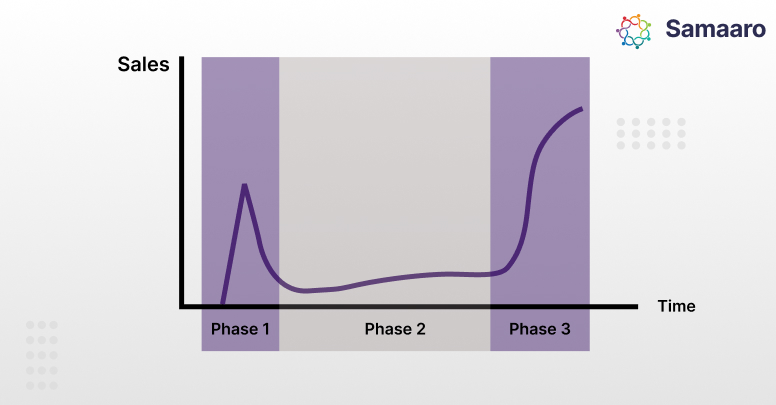
Timing of ticket sales can have a substantial effect on the overall performance of an event. Too early of a start time may not pique the interest of potential attendees, while too late of a start time may limit your ticket sales window. It is essential to strike the proper equilibrium by considering variables such as the event’s size, intended audience, and marketing strategy.
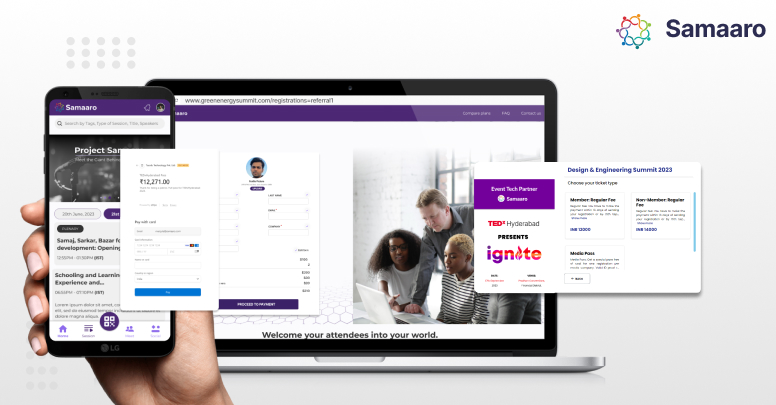
You can overcome the difficulty of pre-event ticket sales by employing a variety of strategies that accommodate to the dynamic nature of consumer behaviour. Consider the following effective strategies:
1. Early Bird Discounts
Early bird discounts are a powerful incentive for potential attendees to purchase tickets for an event well in advance. To maximise the effectiveness of this strategy, the early bird offering must be carefully planned. Create a sense of urgency and exclusivity by allocating a limited number of early bird tickets. Consider setting up multiple tiers of early bird pricing, with discounts increasing for those who sign up first. Transition progressively to standard pricing as the event date approaches to maintain revenue and ensure that those who purchase later contribute more to the event’s profitability.
2. Multiple Price Points
Diverse pricing is a flexible strategy that can be tailored to various segments of your target audience. Ensure that the benefits of each pricing tier are explicitly communicated to optimise this strategy. Access to specific event areas, amenities, or exclusive experiences may be a potential perk. Time-based tiering, in which ticket prices increase incrementally as the event date approaches, can also be effective. This not only encourages early purchases, but also affords the opportunity to capture additional revenue from attendees who delay until later sales cycle stages. Consideration of tiered pricing can help achieve a balance between early ticket sales and overall revenue objectives.
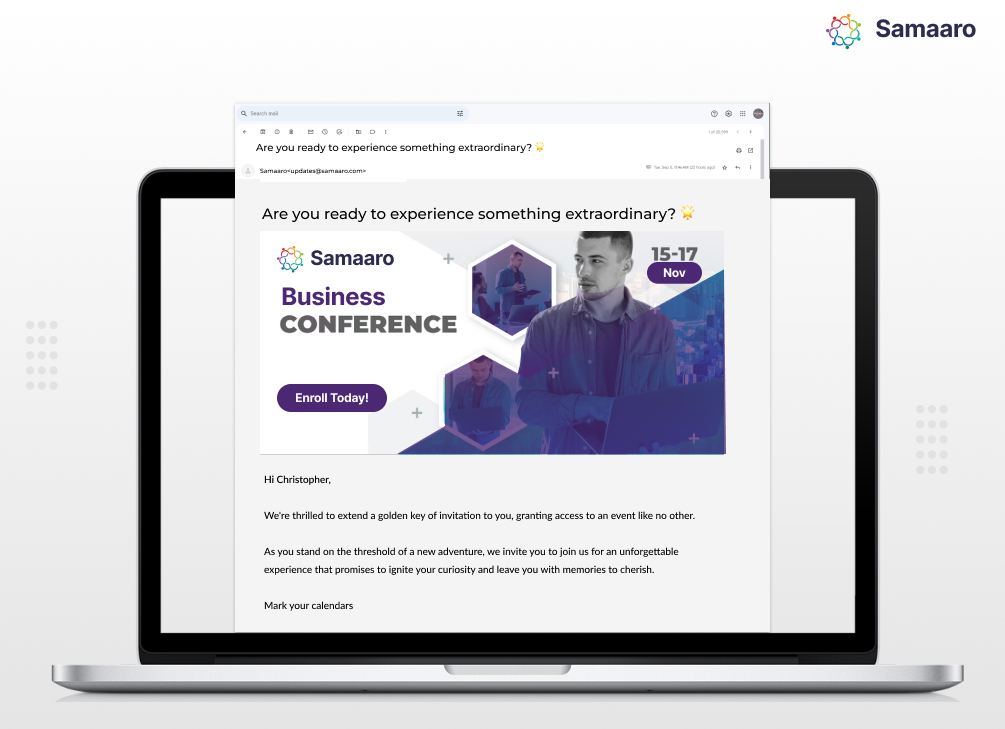
3. Exclusive Entry
Offering exclusive access can substantially increase the desirability of purchasing tickets in advance. Consider designing VIP packages that go beyond standard entry, meet-and-greets, and lounge access. These exclusive experiences provide early purchasers with a sense of privilege and can be a compelling reason to commit early. In addition, you can host exclusive, limited-capacity events or pre-event gatherings for early ticket buyers, reinforcing their special status and providing a preview of the exceptional experience they can anticipate.
4. Time-Bound Offers
Creating a sense of urgency through time-sensitive offers can be an effective sales technique. Implementing flash sales, in which a sudden, limited-time discount is announced via social media, email newsletters, or event apps, can generate enthusiasm and impulse purchases. Countdown timers on your ticketing website or promotional materials visually emphasise the limited nature of the offer, compelling attendees to act swiftly. These time-sensitive promotions can be strategically timed to coincide with marketing efforts or major promotional campaign milestones.
5. Personalised Marketing Campaigns
Successful pre-event ticket sales depend heavily on data-driven marketing campaigns. Elevate segmentation by dividing your audience into segments based on demographics, interests, or previous purchasing behaviour. Customise your marketing content to communicate directly to potential attendees’ interests and pain points while addressing them by name. A deeper connection with your audience is fostered by personalization, which increases the likelihood of conversion. Utilise advanced analytics and A/B testing to continuously refine your messaging and ensure that each segment of your target audience is receptive to it.
6. Flexibility in Tickets
Providing flexible ticket options can reduce hesitance and address concerns of prospective purchasers. Consider offering ticket purchasers the option to receive refunds under certain conditions. Refundable tickets assure purchasers that their investment is safeguarded in the event of unforeseen circumstances. Moreover, allowing attendees to transfer tickets fosters a sense of security, enables group purchases, and reduces commitment anxiety. These versatile ticket options demonstrate your dedication to customer satisfaction and can help you stand out in a crowded event market.
Mastering the difficulty of prior ticket sales is an essential aspect of event planning. Understanding the unpredictability of ticket sales, beginning at the appropriate time, and employing effective strategies can have a significant impact on the success of your event. By practising to the mentioned strategies, you not only ensure a smoother event experience, but also develop a solid customer base for future events.
In today’s fast-paced business world, conferences and summits have transformed from basic knowledge-sharing events to vital platforms for networking, collaboration, and business growth. As modest organisations take on the responsibility of planning and hosting these events, the challenge is to create an atmosphere that provides value to both attendees and sponsors.
To accomplish this, technology has become a game-changer, and mobile web applications, especially those with sophisticated networking features, have emerged as a potent tool. In this blog, we’ll examine how conferences and summits can become more ROI-driven, particularly for small organisations that want to offer attendees and sponsors an exceptional experience.
The power of networking has been recognised for a long time. Networking is typically defined as the art of developing and sustaining relationships. Networking at conferences and summits is more than just exchanging business cards; it’s an intentional strategy that may increase return on the investments (ROI) for everyone involved. Let’s talk about how you can exponentially boost networking in your events considering the new tools and techniques that are making it easier to make genuine relationships.
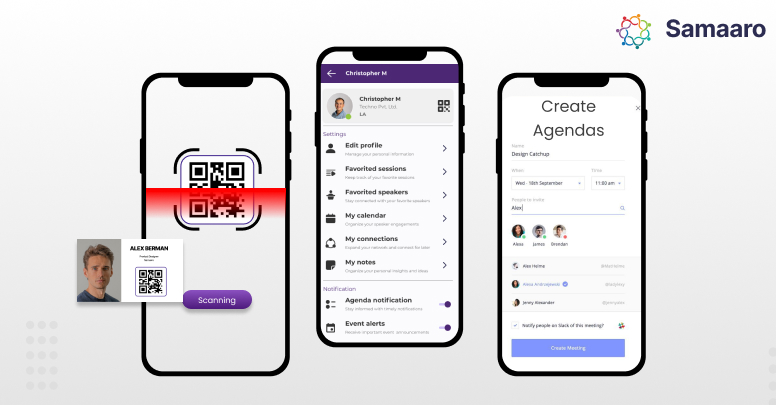
Conventional means of social interaction are changing in today’s digital era. Mobile event apps have changed the face of conferences by providing a streamlined and engaging medium for gathering information, interacting with presenters, and making new connections among attendees.
The capacity to facilitate greater social interaction is a notable function of today’s event apps. Participants can build digital profiles, build relations, and exchange ideas within a unified online community. However, solutions like pre-meeting planner are the genuine game-changers, since they are a technological advancement that may rethink the networking possibilities of gatherings like conferences and summits. Read this in-depth blog post to learn more about the Mobile Event App and its potential for energising your audience.
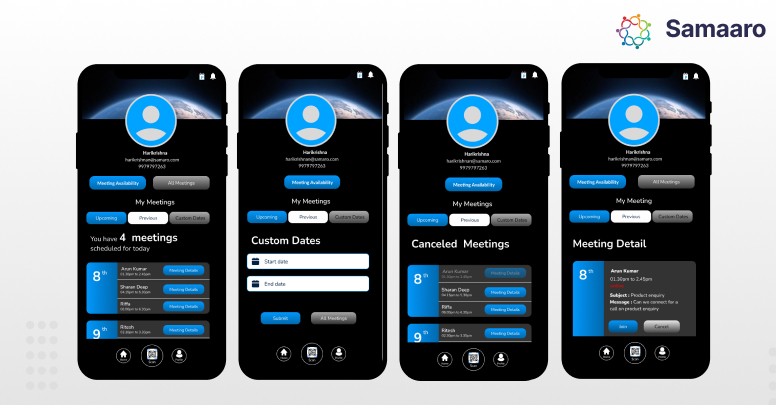
This feature allows participants to schedule meetings with sponsors in advance to discuss topics of particular interest. Attendees can have meaningful interactions, sponsors can showcase their products, and organisers can measure results with ease. As the nature of conferences changes, the use of such cutting-edge methods is crucial to ensuring that participants leave having gained something of value.
Here’s how it transforms the conference landscape:
To maximise the impact of these events, it is essential to put forward a strategic perspective. Creating detailed profiles of both delegates and sponsors, then utilising event apps, leveraging organiser controls, and analysing meetings reports, is a key strategy for enhancing your event experience. To unravel a successful networking journey, let’s delve into each of these aspects.
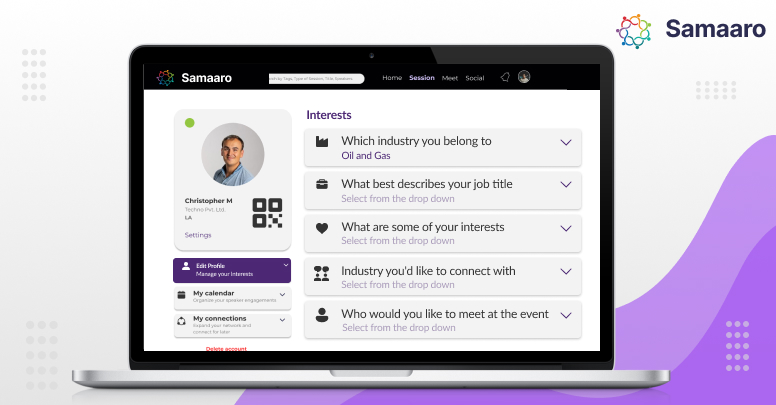
1. Building Comprehensive Profiles
When planning an event, you should begin by collecting as much information as possible about the delegates and sponsors who will be in attendance. This includes registration information, biographical data, interests, and objectives. By understanding the demographics and motivations of your fellow attendees, you will be in a better position to identify potential connections and conversations that align with your own goals.
Participants’ industries, occupations, and geographic locations can be determined through the collection of registration data. This information facilitates the identification of synergies and shared interests.
2. Mobile Event Apps
With Mobile Web Event Apps, you can make events that are interesting, bring people together, and have an effect that lasts. The ability to edit your profile within the application is a crucial feature. This allows you to highlight your expertise, interests, and goals, providing attendees with a clearer picture of what you contribute to the table.
The application can also recommend pairings based on shared hobbies, professions, or objectives. Consider utilising the app’s “wishlist” feature, which allows you to convey interest in connecting with specific people. You can also check out our detailed blog on Mobile Event Apps & its Features.
3. Organizational Controls
Organisers play an integral part in facilitating productive networking interactions. They offer the option to manage introductions in a more controlled manner, as they have the ability to control meetings. Approving or rejecting meeting requests ensures interactions are pertinent and productive, maximising the time investment of participants.
In addition, organisers can assign meeting rooms and times, thereby establishing a framework that optimises the networking process.
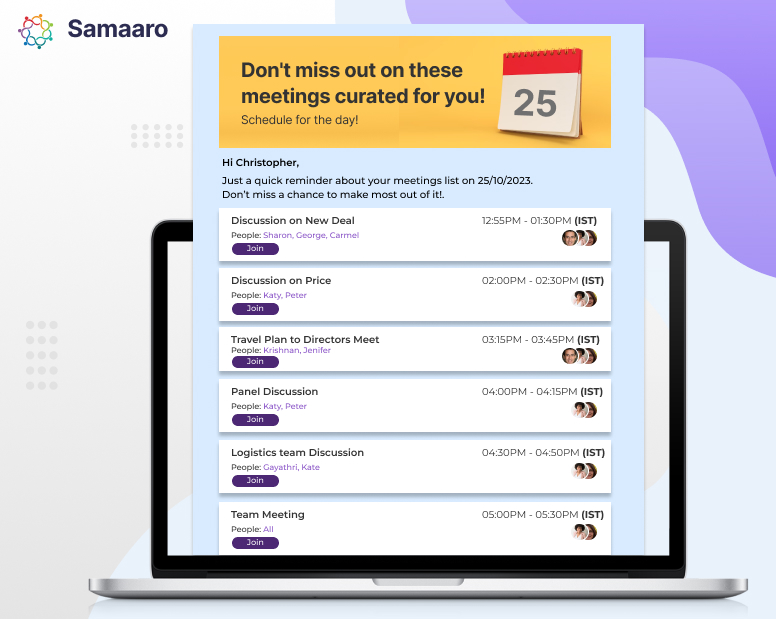
4. Meeting Schedule Communication
As the scheduled date of the event approaches, organisers can send out an announcement email comprising the final meeting schedule. This ensures that all attendees are on the same page and are aware of their impending responsibilities. This simplifies the procedure and eliminates confusion, enabling participants to adequately prepare for each interaction.
5. Meeting Reports & Analytics
Meeting reports become a treasure database of insights following the event. These reports include metrics such as the number of scheduled versus actual meetings. You can evaluate the efficacy of your networking strategy and identify areas for improvement by comparing these numbers.
In addition, collecting feedback from delegates and sponsors regarding their networking experiences can yield valuable insights for future event hosting.
Our approach to conferences and seminars must also change as the business environment evolves. Organisations can transform these events into catalysts for development, collaboration, and long-lasting relationships by adopting innovative networking solutions. In the domain of conferences and summits, where connections are currency, technology-driven networking solutions are the key to unlocking unmatched value for all participants.
Ever pondered the secret to flawlessly executed events that leave attendees in awe? It’s not just impeccable planning. Here’s a stat that’ll leave you intrigued: 90% of event coordinators have harnessed the power of event management software to create and execute their spectacular events as found in Capterra’s study. Having the proper software can transform your events from ordinary to extraordinary, regardless of whether you are an event planning master or just beginning to explore this exciting domain. As the environment continues to change, incorporating innovative solutions is integral to the success of any event.
Event planning software has emerged as a game-changer in terms of speeding up tasks, enhancing the attendee experience, and increasing the event’s return on investment. Let’s examine some features you should seek in event management software for your upcoming event. Each feature plays a critical role in streamlining processes, boosting attendee engagement, and optimising post-event analysis, from creating captivating event websites to nurturing meaningful networking interactions.
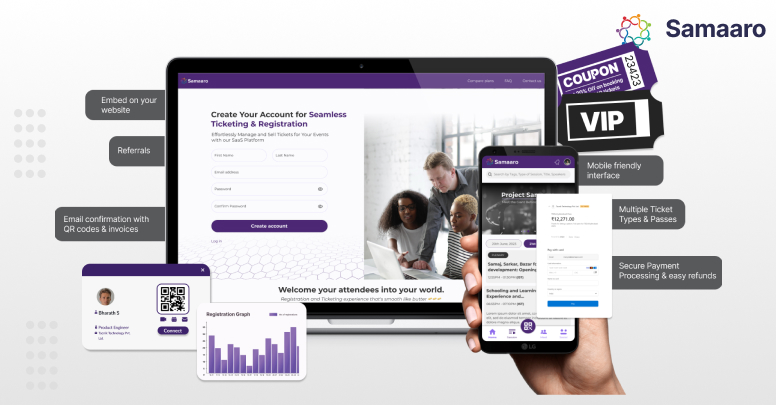
1. Event Website Builder
The first impression is the most significant, and in the world of events, your event website is the digital front door. The event planning software you seek should provide an intuitive website builder that enables planners to create engaging event websites without extensive coding knowledge. The ability to personalise layouts, integrate multimedia, and display essential information such as schedules, speakers, and sponsors enhances the experience of attendees prior to the event.
2. Custom Registrations & Ticketing
Personalised registration experiences are the foundation for effective attendee orientation. The software should facilitate the creation of customised registration forms that capture essential registrant information and adhere to the event’s specific needs. Samaaro also offers CSV uploads for bulk registrations, which simplifies the process for large events. Additionally, single sign-on solutions and integration with popular CRMs ensures a smooth data flow, reducing friction for both attendees and event organisers. Similarly, customizing event tickets enhances the overall experience for attendees and adds a personalized touch to the event.
3. On-site Check-in & Badge Printing Solutions
Creating a favourable first impression is also dependent on streamlining the on-site check-in procedure as much as possible. The software ought to provide capabilities for speedy check-in procedures for attendees. In addition, an integrated badge printing solution enables you to generate badges on-site that have a professional appearance, which improves the experience that each participant has overall.
4. Speaker Management
For events with a constellation of various speakers, it is imperative to have efficient speaker management. Communication between speakers, session allocation, and profile management can be streamlined with a specialised module within the event planning software. Having the option to input speaker biographies, session topics, and presentation materials enables event organisers to create a unified event narrative.
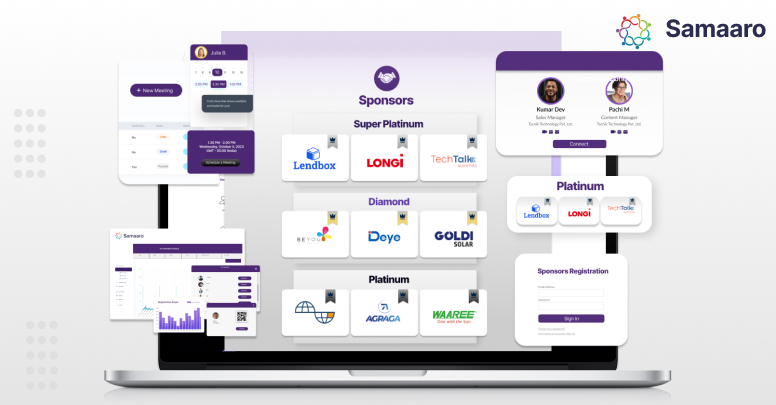
5. Sponsor Management
Sponsors are significant in the funding and enhancement of an event. Managing sponsor relationships effectively is crucial. The software should provide tools for displaying different sponsorship levels, allocating exhibit spaces, and tracking deliverables like logo placement and branding opportunities. Clear channels of communication within the software ensure that sponsors are well-informed and satisfied with their involvement. By providing sponsors with a seamless experience, you can strengthen partnerships and increase the likelihood of future sponsorship.
6. Event App
With the help of the software, you will be able to develop a bespoke application that acts as the participants’ individual guide. They will be able to maintain the event’s excitement at their fingertips while accessing schedules, maps, and real-time updates that are provided. It cannot be denied that mobile event apps have the power to energise attendees of the event. The capability of these applications to enable fast access to information, deliver real-time updates, stimulate timeless connections, and create customised experiences has completely disrupted the event sector and ushered in a new era of innovation.
7. Networking (AI Matchmaking / Meeting Scheduler)
Networking is one of the most valuable aspects of attending events. Utilising AI-powered matchmaking algorithms, event planning software can recommend pertinent connections based on the profiles and interests of attendees. In addition, a meeting scheduler function enables attendees to book one-on-one or group meetings with other delegates, speakers or solution providers. These tools facilitate meaningful interactions and collaborations, resulting in fruitful business opportunities.
10. Event Marketing Tools
Effective marketing is a prerequisite for increasing event attendance and maximising its impact. Event management software with integrated marketing tools permits the creation of targeted email campaigns, social media promotions, and personalised event invitations. Integration with marketing automation platforms improves your ability to cultivate leads and engage with prospective attendees prior to, during, and after an event. You can effectively promote your event, reach a larger audience, and ensure its success by utilising these marketing tools.

9. Accessibility
All events should prioritise inclusivity. Event planning software’s accessibility feature includes real-time translation capabilities for multilingual audiences. This guarantees that language barriers will not prevent attendees from gaining access to valuable content. Providing transcripts for presentations is also advantageous for attendees with auditory impairments or who prefer written content. By providing these features, you create an environment that is welcoming to a wide variety of participants.
10. Engagement
To create a memorable experience, it is essential to keep attendees engaged throughout the event. The software you choose for event planning should include engagement tools such as live polling, interactive Q&A sessions, and gamification capabilities. During sessions, live polling enables real-time audience participation and feedback. Interactive question-and-answer sessions facilitate direct communication between presenters and attendees. Features of gamification, such as scavenger searches or leaderboards, encourage interaction and competition, thereby enhancing the engagement and enjoyment of attendees.
11. Lead Generation
Events are not only about the present; they also provide an excellent opportunity to collect leads for future engagement. Event planning software can integrate digital touchpoints such as QR codes at exhibits, interactive sessions, and lead retrieval tools throughout the event. These touchpoints capture attendee intent, allowing you to collect valuable data for future event planning and targeted follow-up campaigns. Utilising these digital touchpoints increases the value of each participant’s presence.
12. Survey & Other Reports
Feedback collection is essential for evaluating the success of an event and identifying areas for improvement. A comprehensive event planning software should include a survey function accessible via the event app. This feature permits participants to provide real-time feedback on sessions, presenters, logistics, and overall satisfaction. In addition, the software should generate post-event reports that provide information regarding attendance, engagement metrics, and attendee feedback. These reports are fundamental for refining future events, making decisions based on data, and demonstrating the event’s impact.
Creating captivating events that encourage participation and foster meaningful connections in today’s fast-paced world is not a simple task. The Mobile Event App, however, is the secret ingredient that can transform your event from ordinary to extraordinary.
Now, picture an event where there are no set up glitches or confusing interfaces. Imagine a gathering where everything goes swiftly, from entering through to meeting people and beyond. The days of mundane events are over. With Mobile Web Event Apps, you can make events that are interesting, bring people together, and have an effect that lasts.
Embrace the magic, make your events more interesting, and make sure they go well. Don’t settle for ordinary – choose Samaaro and transform your events into unforgettable, captivating experiences.
It is now time to officially bid farewell to long lines and welcome the next major thing, QR Check-in and registrations. With a Mobile Event App, registrations can be optimised, saving organisers and attendees valuable time and effort. Your guests will begin their journey at your event on the proper foot if the registration process is streamlined. Attendees can quickly and conveniently register for events by using their mobile devices. Upon arriving at the venue, guests only need to pull up the app and scan their unique QR code to gain entrance, rather than searching through their WhatsApp or email inboxes for information.
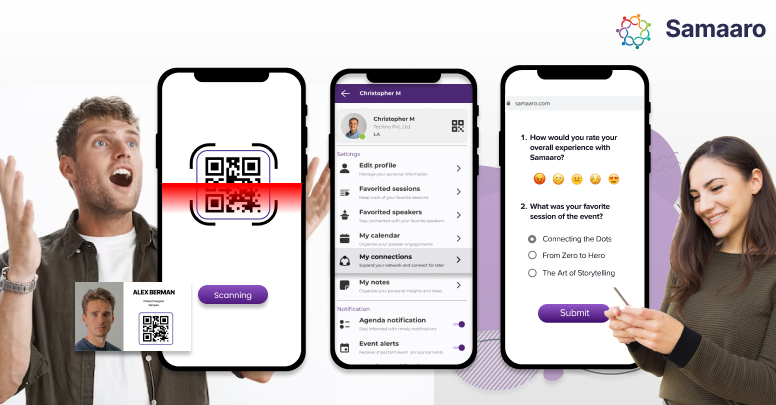
Networking has never been this simple. Not only does the mobile web app connect attendees, but it also supercharges networking. Find and interact with other attendees based on their interests, industries, and even location. Exchanging digital business cards, initiating conversations through the app’s integrated messaging feature, and scheduling meetings on the go are now all possible with the help of a mobile web application. Whether you are a seasoned industry professional seeking collaborations or a newcomer eager to expand your network, the mobile event app is your best friend. Before the event begins, break the ice to make the most of every interaction and maximise your event experience.
Imagine having all event-related information easily accessible on the attendees’ mobile devices. The mobile web app offers a personalised event calendar that makes schedules, speaker profiles, and other information accessible with a single tap. Participants can personalise their event experience by marking must-attend sessions, seminars, and activities. This customised approach ensures that each attendee gets the most out of your event without feeling overwhelmed by the sheer number of available options. The app’s personalised calendar sends ideal reminders and updates in addition to session information, ensuring that attendees never miss a beat.
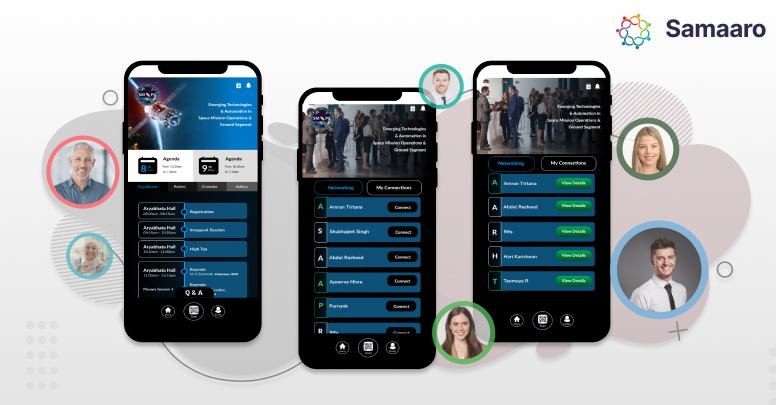
Your event’s enchantment will not diminish when the curtains close. Using the Mobile Web App, your event will have a lasting impact. The Mobile Event App serves as a virtual archive of your event’s highlights, allowing attendees to review presentations, panel discussions, and seminars at their leisure. Share recorded sessions, downloadable resources, and presentation materials through the app directly. With the apps discussion forums and social media integration, attendees can remain in touch with the event community, fostering ongoing conversations and collaborations. This post-event engagement not only reinforces the value of your event, but also ensures that the relationships formed will continue to flourish long after the event has concluded.
The ability of mobile event apps to energise attendees is undeniable. The event industry has been revolutionised by the ability of these applications to provide instant access to information, deliver real-time updates, foster interaction, and create personalised experiences. As technology continues to advance, the potential for even more innovative features and functions in mobile event applications is essentially limitless. By incorporating this digital tool, event organisers can create unforgettable experiences that leave attendees inspired, motivated, and eager for future events.
We have mentioned this before, but it is important to emphasise that before you start planning your event, the first step is to clearly define your event agenda and objectives.
Defining goals for your event and outlining the necessary actions to achieve them can offer several benefits. Firstly, it helps you clearly define what success means for your team. Secondly, it allows you to anticipate any potential challenges or areas where different components of the event may align. Thirdly, it helps you understand the specific numerical targets needed for profitability or breaking even. Lastly, it enables smooth communication of your event requirements within your organisation.
To determine your event agenda, it is important to document the purpose behind your event. During the planning phase of your goals, it is beneficial to engage in a series of inquiries to improve your understanding. The questions that are included are:
When setting event goals, it is recommended to use the S.M.A.R.T. framework. This tool helps in creating goals that are Specific, Measurable, Achievable, Relevant, and Time Bound.
This article explores a significant set of goals that businesses should consider before organising different types of events. It emphasises the importance of having a clearly defined event agenda. It’s imperative to recognize that while events can certainly enhance brand awareness and generate leads, they should be viewed as a component within a broader marketing strategy, rather than a sole reliance.

Conference events provide valuable opportunities for the exchange of knowledge, fostering professional connections, and gaining industry insights. To optimise their effectiveness, businesses should establish the following event objectives:

Trade shows are dynamic marketplaces where businesses exhibit their products and services to a specific audience. Establishing appropriate event agenda is crucial to maximise the benefits of these dynamic occasions.
The successful launch of a new product demands careful and detailed planning. Establishing well-defined objectives will contribute to the achievement of a prosperous launch.
Pop-up events are transient experiences that offer a one-of-a-kind opportunity to interact with a specific audience in a unique location. When organising a pop-up event, consider the following agendas:
Seminars are educational activities designed to facilitate the exchange of knowledge, expertise, and insights. When organising seminars, keep in mind the following objectives:
The purpose of networking events is to facilitate connections within an industry. Determine the following objectives for a productive networking event:

Webinars are online seminars or workshops that enable businesses to interact virtually with their audience. When planning webinars, consider the following objectives:

Charity events are organised to raise money, awareness, or support for a particular cause. When planning charitable events, consider the following objectives:

Partner meetings bring together business partners, distributors, resellers, and other stakeholders to strengthen relationships and discuss potential collaborations. When organising partner meetings, consider the following objectives:
Setting definite, detailed event goals/agenda is comparable to plotting a successful journey. These objectives act as compass points, pointing your efforts, resources, and innovation in the direction of obtaining worthwhile results. However, it’s especially important to stress the significance of not combining goals and anticipating various results from the same occurrence. Each objective has a unique focus and purpose, and attempting to combine or compel them can result in confusion, ineffective efforts, and ultimately unsatisfying outcomes.
.
In today’s competitive business landscape, organizing successful events is crucial for companies to achieve their goals. Whether it’s a corporate conference, trade show, product launch, or a marketing event, the importance of maximizing Event Return on Investment (ROI) cannot be overstated. Every event represents a significant financial and resource investment, and understanding how to drive success is paramount to reap the desired benefits.
Event ROI goes beyond just financial gains. While generating revenue and increasing profits are essential, successful events also play a crucial role in brand building, networking opportunities, lead generation, and customer engagement. By maximizing event ROI, organizations can harness the full potential of these opportunities, leading to long-term business growth and a competitive edge in the market.
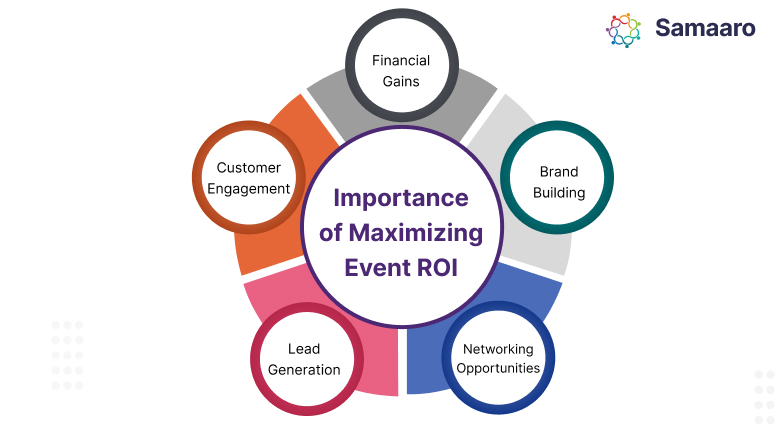
Several factors contribute to the overall success of an event and its ROI. These may include:
Measuring event ROI can be complex due to various intangible elements associated with events. Some challenges include:
This is where event management software plays a pivotal role. By leveraging technology to streamline event planning, execution, and analysis, organizers can overcome many of these challenges and maximize ROI effectively.
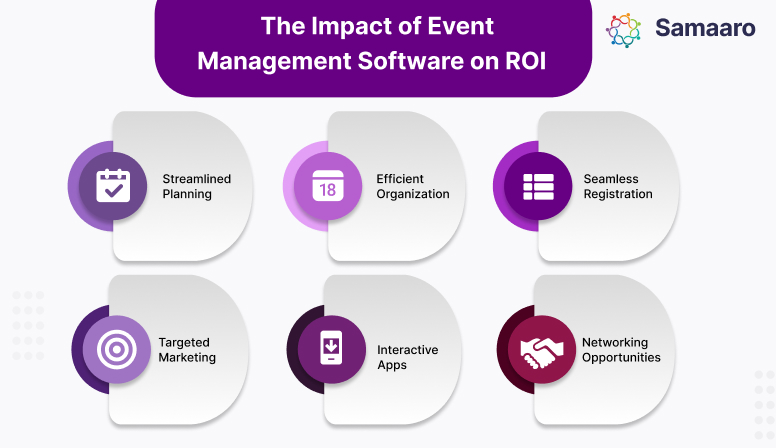
Event management software plays a pivotal role in driving the success of events and maximizing ROI. It provides a comprehensive set of tools and features that streamline the planning, organization, marketing, and engagement processes. By leveraging technology, event organizers can make informed decisions, enhance attendee experience, and ultimately achieve their objectives.
In conclusion, event management software is a powerful tool that significantly contributes to maximizing event ROI. By streamlining event planning, simplifying registration processes, optimizing marketing efforts, and improving attendee engagement, event organizers can create successful events that deliver tangible results and leave a lasting impact on participants and stakeholders. Embracing technology-driven solutions is the key to staying competitive in the ever-evolving events industry and driving success for businesses and organizations alike.
Scalability is a crucial feature of event management software that allows it to adapt to events of varying sizes and complexities. Whether organizing a small workshop or a large-scale conference, the software should cater to the needs of the event, ensuring smooth operations and efficient management. Scalability enables event organizers to handle a growing number of attendees and data without compromising on performance and user experience.
Personalization is becoming increasingly important in event management, as it enhances attendee satisfaction and engagement. Event management software with personalization capabilities can tailor the event experience to individual preferences. This may include personalized agendas, session recommendations based on attendees’ interests, and customized communication. By delivering a more personalized experience, organizers can foster stronger connections with attendees and increase overall event satisfaction, leading to improved ROI.
Seamless integrations with other business tools are a critical aspect of event management software.
By incorporating these key features, event management software empowers organizers to optimize their event planning, deliver personalized experiences, streamline operations, and evaluate performance effectively. Maximizing event ROI becomes attainable when the right technology is in place to support every aspect of event management and create impactful, memorable events.
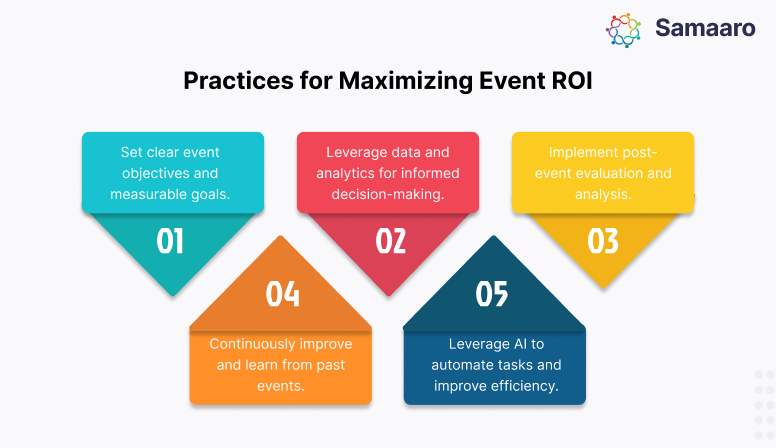
Event management software can be a powerful tool for maximizing event ROI. By using event management software, you can:
Before launching an event, it is essential to define clear objectives and set measurable goals. Event management software enables organizers to track key performance indicators (KPIs) such as
To maximize the event’s success, use event management software to set benchmarks and performance targets for each KPI, and align event strategies and planning with the defined objectives and goals, ensuring a focused and purposeful event.
Once you have set clear event objectives and measurable goals, you can use data and analytics to make informed decisions about your event. For example, you can use data to:
By using data and analytics, you can make better decisions about your event and improve your chances of success.
After your event is over, it is important to evaluate your results and identify areas for improvement. You can use event management software to collect feedback from attendees, track sales leads, and measure the overall success of your event.
This information will help you improve your event planning process for future events. By continuously evaluating and improving, you can ensure that your events are more successful over time.
The best way to maximize event ROI is to continuously improve and learn from past events. This means taking the time to analyze your data, identify areas for improvement, and make changes to your event planning process.
For example, if you notice that your attendance numbers are declining, you could try changing your marketing strategy or offering more relevant content. If you find that your attendees are not engaged, you could try changing the format of your sessions or adding more networking opportunities.
By continuously improving, you can ensure that your events are more successful over time.
Event management software can also be used to automate tasks and improve efficiency.
For example, you can use event management software to automatically send out confirmation emails, track RSVPs, and manage speaker payments. By automating tasks, you can free up your time to focus on other aspects of event planning.
This can save you a lot of time and energy, which can help you make your events more successful.
In conclusion, in today’s fast-paced and competitive landscape, investing in event management software has become a strategic imperative for businesses and organizations seeking to thrive in the events industry. With the right event management platform, such as Samaaro, event organizers can streamline their operations, enhance attendee experiences, and optimize resource utilization, ultimately leading to better returns on investment (ROI). From seamless registration and ticketing processes to interactive networking opportunities and real-time analytics, Samaaro empowers event organizers to orchestrate successful events that leave a lasting impact on participants and stakeholders alike. By leveraging the power of event management software, businesses can unlock new possibilities, drive growth, and stay ahead of the curve in an ever-evolving events landscape.
In an era where events are no longer confined to mere gatherings but are anticipated as immersive experiences, event organizers are increasingly turning to the power of personalization in event ticketing. At its core, personalization in event ticketing refers to tailoring every aspect of the ticketing process to meet the unique preferences and expectations of individual attendees. In order to stand out and create events that attendees remember forever, organisers now need to give tiered tickets choices, allow bulk registrations, and generate excitement through coupon codes and RSVP features. Personalization strategies can have a big influence on how successful an event turns out in the end.
Join us as we explore each aspect of personalisation in event tickets on this informative journey. Towards the end, you’ll not only comprehend how these tactics work but also be able to see how they all work together to create an outstanding event experience. This blog article will serve as your guide as you negotiate the always changing world of contemporary event ticketing.
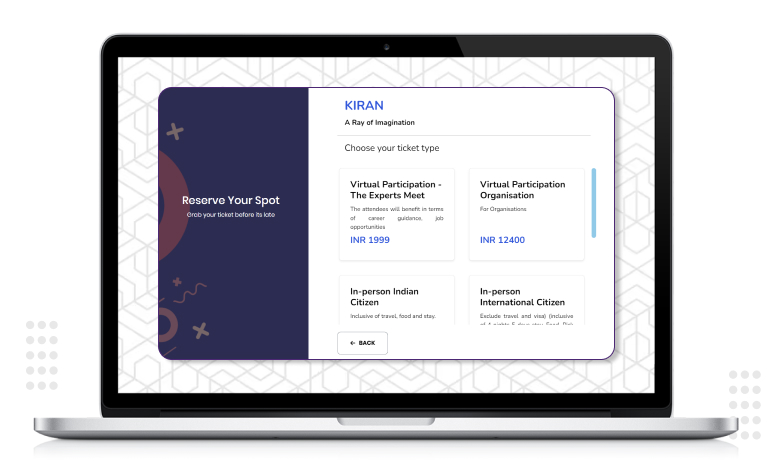
Flexibility In Ticket Types
Providing flexibility in ticket types allows attendees to select options that resonate with their interests and budget. Customizing ticket types such as early birds, senior citizen discounts, veterans, VIP passes, coupon codes and more has the power to increase the overall ticket sales for the event. Encourage larger group attendance by providing tailored ticket options for students, families, and even sizable groups, thereby incentivizing a collective experience at your event.
Customizing Ticket Packages
Customizing ticket packages takes personalization a step further by allowing attendees to curate their event experience. This could include options like choosing specific workshops, meet-and-greets, or merchandise bundles, enabling attendees to design a unique package that aligns with their passions.
Dynamic pricing and personalized offers
Dynamic pricing and personalized offers harness the power of data to adjust ticket prices based on demand, ensuring a fair market value. Moreover, offering personalized discounts or exclusive offers based on attendee preferences or past interactions can foster a sense of belonging and appreciation. In sum, tailoring ticketing options is the cornerstone of crafting unforgettable event experiences that cater to the individual tastes and desires of your audience.

Personalized Email Campaigns
Personalized email campaigns are highly likely to be positively received and impactful due to their tailored approach that aligns with each recipient’s unique preferences. You may increase the impact and efficacy of your communications by understanding people’s preferences and tailoring messaging to suit them. Every person’s experience with these campaigns may be uniquely tailored, and senders can even include the recipient’s name to email content to make it more personalised and effective.
SMS and Push Notifications
By sending timely notifications, reminders, and special material straight to participants’ devices, SMS and Push Notifications boost this engagement. These brief announcements keep guests informed and foster a feeling of connection with the event, which improves the overall attendance experience.
Social Media Engagement
Social media engagement takes use of the widespread use of different platforms to interact with attendees in a comfortable environment. Organisers create a feeling of community and authenticity through interactive posts, live Q&A sessions, and behind-the-scenes looks, building a special link between the event and its audience. In conclusion, personalised communication is a fundamental tenet of event ticketing since it enables event planners to create custom experiences that make an impact on attendees.
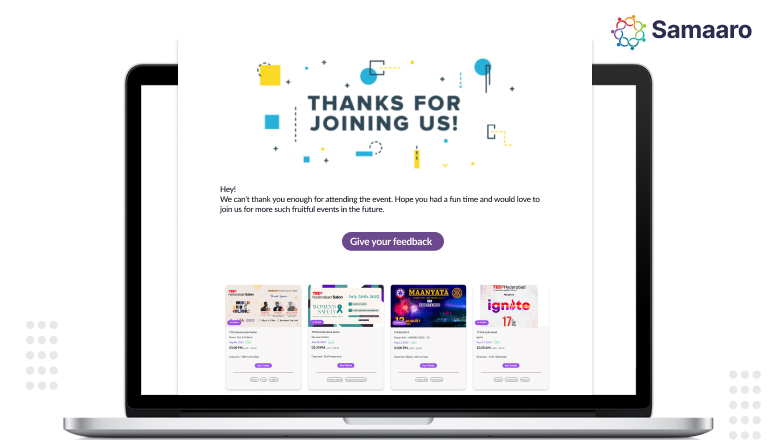
Follow-up Surveys and Feedback
Engaging interactions with clients is vital, but they it is not adequate in and of themselves. It’s equally important to pay attention to post-interaction activities. The day after your event offers an essential opportunity to further your goals. During this time, using surveys serves a dual purpose: they provide participants a way to share their thoughts and give event organisers a way to gauge how well-received the event was overall. By analysing this data, organisers may identify areas that require improvement and alter forthcoming events so that they better suit the tastes of their audience.
Personalized Thank You Messages
An easy yet impactful way to close the communication gap between event organisers and attendees is by sending thank-you notes. These letters serve as expressions of gratitude, thanking everyone for their attendance at or participation in your event. By taking the time to write them a personalised message, you show them how much you appreciated and recognised their attendance, leaving them feeling good long after the event is over. The idea that those who attend are more than simply audience members, but essential community members is reinforced when they get a sincere thank-you message. They may feel more loyal and willing to consider attending future events because of feeling welcomed and appreciated.
We discovered how personalisation fosters a stronger connection between event organisers and the attendees by exploring its significance. This bond goes beyond the purely transactional aspect of ticket sales, creating an atmosphere of expectation, exclusivity, and belonging among attendees. More engagement and pleasure is obtained when it is possible to respond to individual preferences, whether it be special access, or curated content, results in a heightened level of engagement and satisfaction. Personalise each event experience you design using Samaaro’s Event Ticketing Software to appeal to the target market and audience you want to attract.
Marketing professionals recognise the significance of implementing successful tactics, and a startling 31% of them choose event marketing as their most effective tactic. Events stand as a fantastic opportunity to engage your audience, flaunt your brand, and generate extraordinary outcomes in this digital age where internet marketing rule the scene.
The fact that event marketing has numerous aspects and offers so many advantages speak volumes. The potential of events is limitless, from increasing brand exposure and encouraging customer interaction to generating valuable leads and educating both prospects and consumers.
However, as with any marketing endeavour, the outcome lies in the execution. A badly organised and carried out event may be disastrous, wasting resources, missing out on great possibilities, and perhaps tarnishing the brand’s reputation. On the other side, a well-designed event marketing plan may bring about a wealth of benefits, such as increased brand recognition, an upsurge in lead generation, and valuable consumer insights.
With so much at stake, it becomes paramount to navigate the world of event marketing with precision and tact. Therefore, let’s explore some of the vital dos and don’ts that might make or break your event marketing efforts.

The secret recipe to attract a roaring crowd lies in a mind-blowing event agenda. And guess what? Samaaro is here to empower you with the creative freedom to craft unforgettable event websites that set the stage on fire. With a plethora of stunning templates at your fingertips, you can effortlessly infuse the event with the perfect tone and vibe. Craft a well-balanced program that includes relevant topics, expert speakers, and interactive sessions. Interactive sessions, such as workshops, panels, and Q&A sessions, foster engagement and create a dynamic atmosphere. Attendees appreciate the opportunity to interact with speakers and fellow participants, making the event more memorable and valuable.
If you’re not actively participating in social media trends, you risk falling behind the times, as nowadays, being active on multiple platforms is the key to success. It’s important to share visually captivating content, such as event teasers, behind-the-scenes clips, and highlights of the speakers. Engaging with your followers and promptly responding to their queries helps build anticipation and fosters a sense of community surrounding the event. Using AI to create content AI can help you determine the best writing style and tone for session materials including presentation slides, handouts, and promotional text. Create a unique hashtag for your event to stand out, then urge attendees to use it when posting on social media. Promote tagging and run social media competitions as well to encourage sharing.
Generating FOMO (Fear of Missing Out) ahead of the event can greatly motivate attendees to participate. Employing pre-marketing tactics, such as providing early bird ticket promotions and exclusive discounts, creates a sense of urgency and encourages people to register early. This approach not only increases ticket sales but also allows you to gauge the initial interest in the event and make necessary logistical arrangements accordingly.
59% of marketers believe email is over twice as effective at generating leads than channels such as PPC and paid social media. Well, the researchers have laid out the importance to incorporate email marketing. Create a targeted email list by collecting contact information through website sign-ups, social media lead generation, and other avenues. Start by crafting engaging and personalized emails that cater to the recipient’s interests and needs. Share valuable content, event updates, and exclusive offers. Additionally, send reminders, last-minute details, and post-event follow-ups to maintain a positive relationship with your audience.
One of the most effective methods to maximize event marketing is by inviting last year’s attendees to the upcoming event. Not only that, but you can further encourage their participation by offering incentives and referral programs. Another smart approach is to start selling tickets for the next year’s event right after the conclusion of the current one, initiating early marketing efforts. Share exciting details about the future event to entice more and more people to join in the anticipation and excitement.

Consistency in branding is a key consideration if you want to leave a lasting impact on your audience. Make sure the logo, colour palette, and general design language of your event are consistent with your brand identity. Certain event planners could produce packed designs that overwhelm visitors and impede important information. Effective event marketing relies on clarity and simplicity. Focus on user-friendly designs while keeping it aesthetically appealing.
Attendee feedback is a treasure of useful information. Not getting feedback prevents you from knowing what went well and what needs improvement. Send questionnaires to attendees after the event to get their feedback on the event, the calibre of the sessions, and ideas for future events. Similarly, event analytics offer insightful data on attendee behaviour, engagement, and overall event success. There may be lost chances to improve future events if important indicators like registration rates, participant demographics, and session popularity are not monitored.
Although traditional advertising has its advantages, depending only on it may restrict the visibility and reach of your event. Employ digital marketing techniques like influencer collaborations, email campaigns, and social media advertising to reach a wider audience and generate more discussion about your event. An event marketing campaign’s success depends on finding the ideal mix between conventional and digital platforms. To increase attendance from a variety of demographics and increase the exposure of your event, combine the two tactics.
Missing out on post-event engagement might result in lost chances to develop relationships with attendees. Continue to engage with your audience through newsletters, webinars, or exclusive content related to the event’s themes. By staying in touch, you raise the possibility that they may back your brand by attending future events. Send them unique thank-you emails to show your appreciation for their involvement. Include the event’s highlights as well as any related materials or recordings. This action not only expresses gratitude but also encourages audience participation.
In conclusion, refining the art of event marketing demands striking a careful balance between creativity, planning, and foresight. You can make your events successful and leave a lasting impression on your audience by knowing the dos and don’ts.
Events, whether they be business conferences, music festivals, weddings, or trade shows, serve as key for bringing people together and building a sense of community. Event management has changed drastically over time, evolving to keep up with cultural trends and technology innovations. It has never been harder to keep up with the most recent developments in the industry as we stand on the edge of a new era.
Professionals in the event management field may improve their offers, acquire a competitive edge, and assure long-term success in this fast-paced market by being aware of and adopting the most recent developments. It is imperative to investigate the most recent EMS developments that are reshaping the industry as technology continues to influence how events are organised, carried out, and experienced.
Event management software have developed into essential tools for event organisers looking to optimise operations and raise attendee happiness, from event registration and ticketing to on-site interaction and post-event analytics. In this blog, let’s explore some exceptional EMS trends that are going to be big in 2023!
Hybrid Events
Did you know that 73% of organisers believe that hybrid events will become more prevalent in the future? These gatherings mix the personal touch of physical gatherings with the benefits of virtual gatherings, such as flexibility and a wider audience. It is anticipated that the popularity of hybrid events will increase as more Middle Eastern nations adopt hybrid work and learning practices.
Event planners and businesses are aware of the value of conventional live events, but to close the gap between the real world and the virtual world, they are turning to virtual solutions. This enables businesses to unleash their creativity and create novel methods of information dissemination while also sustaining money and resources.

Facial Recognition and the Era of Contactless Convenience
The way events are organised and guarded has been revolutionised by facial recognition technology. The tradition of physical tickets or laborious registration procedures has been replaced by seamless check-in procedures made possible by face recognition devices.
The system quickly recognises and authenticates attendees as they approach specific entrance points, allowing admittance to the event. To improve the entire event experience, these technologies may also be utilised to recognise VIPs, personalise interactions, and offer specialised services. As a potent tool that is quickly gaining acceptance in a variety of sectors, facial recognition technology for event registration is growing. Facial recognition technology is a game-changer for the events sector thanks to its speedy attendance identification, elimination of human check-ins, and provision of personalised experiences.
AI – Artificial Intelligence
Come 2022 and AI is everywhere, and the event business is no different. Adapting attendee experiences to their unique preferences and interests can solve one of the most prevalent problems in this field. Event planners can use the study of attendees’ profiles and behaviour to recommend meaningful connections with appropriate exhibitors or like-minded peers by using AI-powered matching engines. Large-scale events and conferences, which can last for many days, include a variety of lectures, panels, and breakout sessions. AI can aid throughout the event lifecycle, including planning, ideation, and post-event tasks. To learn more about AI’s role in event ideation and how it enhances guest and organizer experiences, read our detailed blog on using AI for seamless events.
Attendees are still required to go through these choices to choose the ones that are most pertinent to their interests, this is where AI is so valuable. With attendees’ consent, AI can analyse various data points such as interests, geographical location, social media activities, and career experience. By doing so, AI eliminates the need for attendees to meet people randomly or endlessly browse through the attendees’ list. Instead, it enables them to establish higher-quality connections that align with their specific business needs and interests.

Wearable Tech
Wearables have become a great complement to events, combining amusement with insightful data. Wearable technology typically tracks numerous event parameters, in the form of “smart” badges and more. Wearable technology makes it easier to track event attendees more effectively. For instance, it enables planners to get detailed information on participants’ demographics, such as VPs, women between the ages of 18 and 35, or other information gathered during registration, in addition to information about the number of attendees at sessions and activities.
Wearable technology ushers in a new era of seamless event experiences and provides less disruptive options for attendees, despite its currently limited level of popularity. The incorporation of fun and functionality into wearable technology has the potential to revolutionise event management by improving guest tracking, data analysis, and ultimately, participant satisfaction.
Sustainability
A significant shift has occurred as people are now placing greater emphasis on the impact they have on the environment. As a result of this transformation, the concept of sustainability has arisen, particularly in the search for clean energy alternatives without eliminating current lifestyles. The concept of sustainability is being embraced by the events industry as well.
The development of technology and the acceptance of cleaner energy sources stand out. Event planners are implementing a variety of best practises to guarantee sustainability. They actively promote environmentally friendly travel and give local employment a priority while planning their events. In 2023, these behaviours will become more significant in determining people’s conduct and event choices.
To maintain their competitive edge and guarantee long-term success, professionals in this industry must remain watchful and adopt the most recent advancements. These trends are expected to dominate the market in 2023 and beyond, from hybrid events and AI-powered personalisation to wearable technology. Adopting sustainable practises will be essential as consumers prioritise the environmental effect of events more and more. Event planners can create remarkable experiences that encourage a feeling of community and participation among guests by incorporating these trends and keeping on at the forefront of innovation.

Built for modern marketing teams, Samaaro’s AI-powered event-tech platform helps you run events more efficiently, reduce manual work, engage attendees, capture qualified leads and gain real-time visibility into your events’ performance.
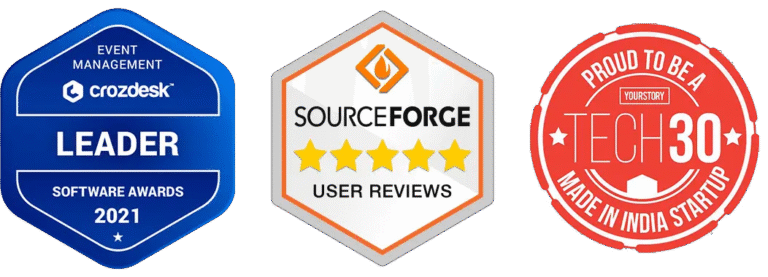
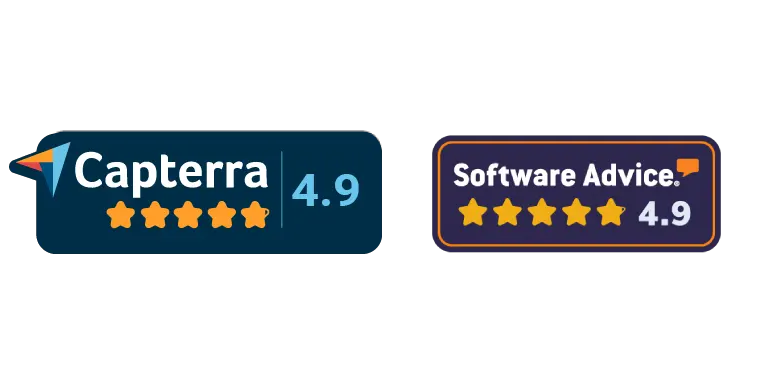
© 2025 — Samaaro. All Rights Reserved.